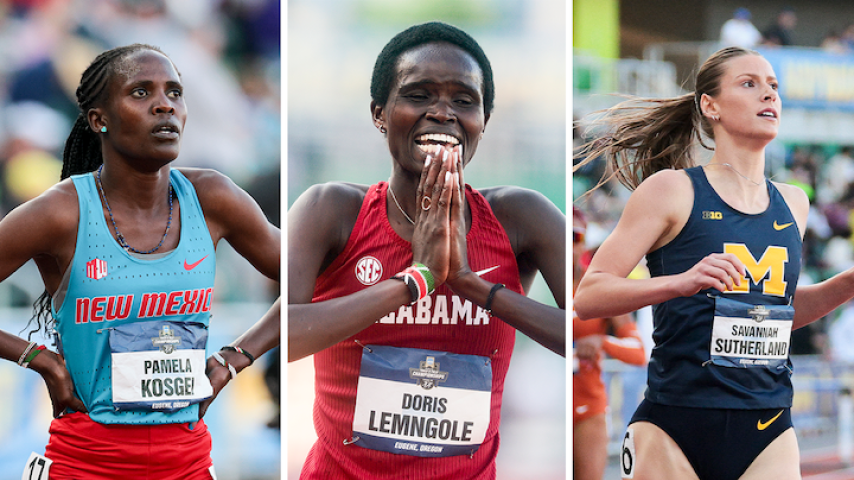
Exciting times are ahead for select college basketball programs this season.
Here are some teams that may have their most talented rosters ever.
Nevada
The Wolf Pack won 29 games in 2017-18, reached the Sweet 16, and return just about everyone with the exception of sharpshooter Kendall Stephens. But they add 5-star forward Jordan Brown and have a real chance to be the best offense in college basketball this year.
Nevada ranked seventh in offensive efficiency last season, canning almost 40 percent of its 3s and turning the ball over less than anyone in the land. The Wolf Pack present mismatch lineups all over the floor; when just about everyone in the lineup can shoot, pass and dribble, you become extremely hard to guard. There are no hiding spots for opposing defenses. Sag off a weakside shooter or help a player who’s been beaten, and you’re likely toast.
MORE: The most successful college basketball mascots
Caleb and Cody Martin return, as does Jordan Caroline. That trio combined to averaged 53.6 points per game last year. A scary potential lineup: The Martins, Caroline, Brown and point guard Lindsey Drew (depending on how he heals from a torn Achilles). That crew is switchable across four positions and has bucket-getters everywhere you look. The Wolf Pack also have depth.
Nevada’s defense needs to improve, but if the Wolf Pack score like they’re expected to, an incremental jump will suffice. This program has made it to the Sweet 16 twice, but Nevada is national championship-good in 2018-19. The tournament is a fickle beast, but the Wolf Pack should cruise to 30 wins after falling just shy of that mark the past two years.
Tennessee
Tennessee returns just about everyone from a 26-win team, including its top six scorers and SEC Player of the Year Grant Williams.
The Volunteers are the inverse of the Wolf Pack, in a sense. Continuity is on their side, but the defense is what’s going to scare opponents. Tennessee ranked sixth in defensive efficiency last year; with another season of learning one another’s tendencies, the Volunteers could have the best defense in college hoops. Williams is a two-way monster, Admiral Schofield is a wrecking ball who has sneaky quickness, and the guards are feisty. It’s extremely hard to screen Tennessee’s perimeter players because of their ball pressure. Wreaking havoc without fouling is a skill, and the Volunteers have plenty of players who can do it.
Tennessee has had some really good teams in the past. It won 31 games in 2007-08, but the Volunteers have never reached a Final Four.
We don’t know if that’s in store for 2019, but a Final Four appearance is certainly possible. If Tennessee improves like we expect it to and one of the guards pops, this team can beat anyone.
Auburn
The Tigers return most of a team that won a share of the SEC last year, but they’ll lose Mustapha Heron. That’s significant. Heron averaged 16.4 points and 5.3 rebounds last year and was Auburn’s best shot creator.
But it has the juice to replace him. The Tigers return six of their top eight scorers including Bryce Brown, who looks ready for an increased role. Brown averaged 15.9 points per game as a junior.
MORE: The longest active home winning streaks
Auburn hadn’t made the NCAA tournament since 2003 before last year. The Tigers won 29 games and reached the Sweet 16 in 1999. That’s this group’s biggest competition.
Auburn could absolutely make it past the Sweet 16 with good health and a couple of fortunate bounces. The SEC looks strong this season.
TCU
The Horned Frogs have made the NCAA tournament twice since 1987, and Jamie Dixon seems ready to usher TCU basketball into a golden age.
TCU won 21 games last year despite only getting 17 outings from Jaylen Fisher, who suffered a season-ending injury. He’s back, and the Horned Frogs were a different team before Fisher’s setback. They were 13-4 with him and 8-8 without him. Fisher averaged 12.3 points and 5.4 assists when he was in the lineup.
That said, replacement Alex Robinson played well in Fisher’s absence, averaging 6.1 assists per game. It’s going to be exciting watching Fisher and Robinson in the same backcourt. The more ball-handlers, the better; the best offenses in the country usually have several guys who can create shots for themselves and others.
TCU loses Kenrich Williams, which hurts. He averaged 13.2 points, 9.3 rebounds and 3.9 assists last year; he was an all-around stud. If the Horned Frogs are better than they were last year, it probably won’t be by much.
But there’s reason to think they can be. The Robinson-Fisher dynamic adds an intriguing element, and Desmond Bane was remarkable down the stretch last season. The Big 12 probably won’t be as good as it was last year with the exception of Kansas, and Dixon has more of his guys in place.
It’s an exciting time to be a TCU basketball fan.
Kansas State
It always felt like Kansas State was better than the record showed during last year’s regular season. And while the NCAA tournament shouldn’t be used to validate or invalidate regular season results, it’s worth noting that the Wildcats played their best basketball when it mattered most last season, reaching the Elite Eight.
MORE: krikya18.com college basketball home
They did so mostly without Dean Wade, the best player on the team. A 6-10 big man with range, Wade averaged 16.2 points and 6.2 rebounds last year while making 44 percent of his 3s. Barry Brown, the 1B to Wade’s 1A, averaged 15.9 points, 3.1 rebounds and 3.2 assists per game. There aren’t many 1-2 combos better than Wade and Brown in college basketball; the Wildcats also have some interesting complementary pieces like Xavier Sneed. Every vital piece from last year’s team returns.
Kansas State has had some talented squads in the past, but nothing jumps off the page. It won 29 games in 2009-10 and reached the Elite Eight. That’s the bar for this group.
The Wildcats need to establish more regular season consistency, but if they do, they can have a historic year. What a fantastic turnaround for Bruce Weber, who seemed to be in danger of losing his job not too long ago.



